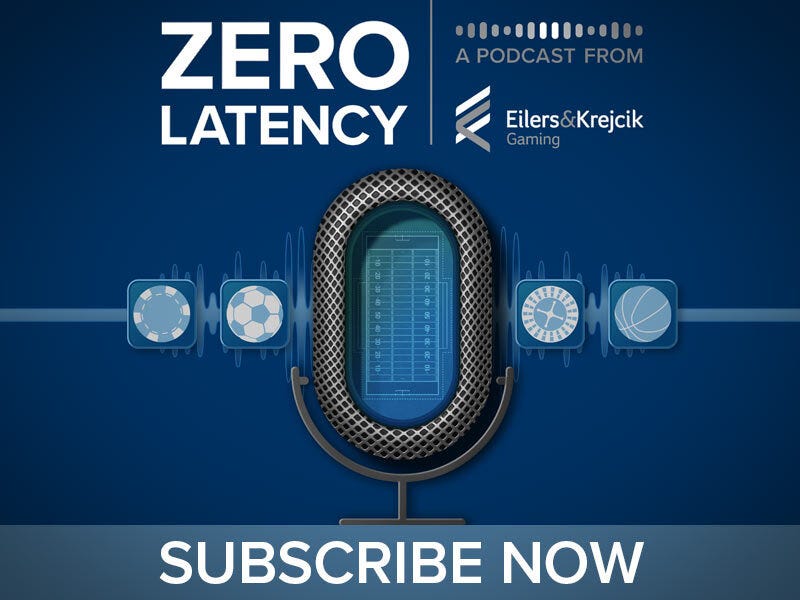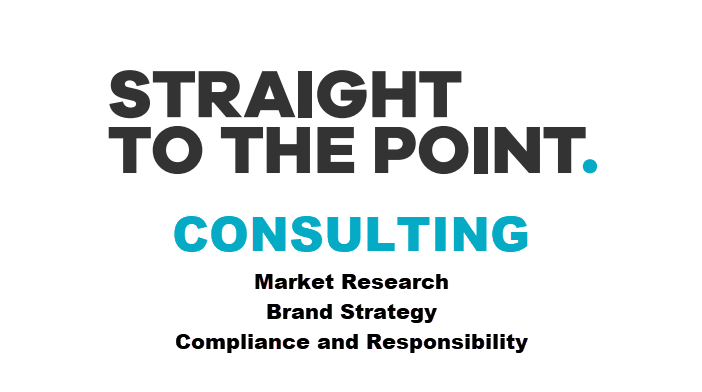The Weekender: iDEA Webinars; Missouri Sports Betting; And More
Battle heats up over Missouri's sports betting initiative. iDEA Growth seminars. Federal updates: The SAFE Bet Act and election betting.
The Bulletin Board
ABOVE the FOLD: A look at the three biggest stories of the week.
— iDEA Growth Webinars: AI, Sports Betting 2.0, and the CEO Roundtable.
— Missouri Sports Betting battle heats up.
— Election Betting and the SAFE Bet Act.
BONUS THOUGHTS: Gaming USA Corporation’s Alan Woinski gives an alternative perspective on the situation unfolding in Missouri.
HOUSEKEEPING: A look at recent podcasts, featured articles, and more from yours truly.
SPONSOR’S MESSAGE - SUBSCRIBE NOW to Zero Latency, the new podcast from Eilers & Krejcik Gaming that provides unparalleled insight into the U.S. online gambling industry through interviews with industry insiders and analysis from EKG experts.
A Trio of Webinars from iDEA Growth and GeoComply
Last week, iDEA Growth and GeoComply held a series of lunchtime webinars covering three of the industry's hottest topics.
The webinars are available to view here: https://ideagrowth.org/webinars/
Webinar 1: Leveraging AI for Responsible Gaming, Player Protection, Integrity, and Fraud Detection
You can read my summary of this webinar here.
Webinar 2: Sports Betting 2.0: The Next Wave of Legislation and Regulatory Frameworks
I’ll have a complete write-up of this webinar on Monday
Webinar 3: Vision 2030: CEOs Chart the Future of U.S. iGaming
I will include my thoughts on the third and final webinar in Tuesday’s newsletter.
Missouri Sports Betting Ballot Initiative Update
Missouri’s sports betting ballot initiative is in for a fight.
Caesars has donated $4 million to Missourians Against the Deceptive Online Gambling Amendment. In comparison, DraftKings has pumped another $5 million into the pro-legalization Winning for Missouri Education effort, bringing the group’s funding total to $16.5 million.
The Winning for Missouri Education group also launched its first ad backing the ballot initiative, highlighting the education funding tied to the legalization of sports betting.
On the flipside, Missourians Against the Deceptive Online Gambling Amendment have gone on the attack, saying it “would enrich online, out-of-state gambling corporations while creating special loopholes that would allow them to pay zero dollars to Missouri.”
Check out the Bonus Thoughts section below for another perspective on the Missouri sports betting fight.
Two Hot Topics: Election Betting and the SAFE Bet Act
Election Betting:
“After scoring a significant legal victory that led to Kalshi offering markets on US elections, the Court of Appeals for the District of Columbia Circuit has put the lid back on election betting. The court “issued an order Thursday night temporarily freezing the matter until it can consider and rule on the issue.”
The SAFE Bet Act:
“One of the big stories last week was Rep. Paul Tonko's and Sen. Richard Blumenthal's announcement of the SAFE Bet Act during a press conference at the Capitol.
“[…]
“Tonko delivered a scorching line, equating sportsbooks to big tobacco, which he said was previously allowed to do whatever they wanted “so long as they pay for chemotherapy and hospice.” That line will likely be deployed as an attack against the industry opening its coffers for problem gambling funding: “Gambling sites can do whatever they want so long as they pay for counseling and funeral costs (linking gambling addiction and suicide).””
Bonus Thoughts from Alan Woinski
The following is an excerpt from The Gaming Industry Weekly Report, Presented by Gaming USA Corporation. Reproduced with permission from Alan Woinski
The views and opinions expressed are those of Gaming USA Corporation and do not necessarily reflect the views or positions of STTP.
“The hybrids (traditional casino companies also in OSB/iGaming) are finally showing signs they have seen the light on their differences with Interactive Only companies. Newly disclosed campaign finance data revealed Caesars Entertainment has contributed $4 million to the committee called “Missourians Against the Deceptive Online Gambling Amendment.” Other data shows DK Crown Holdings Inc., a DraftKings company, has contributed $5 million to the “Winning for Missouri Education” campaign.
“Since when are all parties not aligned on the passage of both potential profitable and unprofitable online gambling measures? In the past the only thing that mattered was getting something legalized in a state whether there was a chance to make money or not. The reality is that the traditional gaming industry is starting to see what we have been warning about for 10 years. The interactive only group does not have the same priorities as the traditional casino industry when it comes to online gambling. We first brought this up when NJ outlined the rules and regulations for the legalization of iGaming. We even questioned the then CEO of 888 Holdings about it, asking how it is fair that the interactive/DFS only companies can partner with traditional companies and actively compete against them with the skins. It was not like Brian Mattingley denied it back then, in fact he openly told us the rules were tilted in favor of the partners to the casinos.
“Fast forward to 2024 and CZR is objecting to the rules proposed for Missouri’s legalization of online sports betting. They have suddenly realized that if a company invests billions in the state through their brick and mortar casinos, perhaps they should get a better deal than an interactive company that hasn’t invested much at all. Amendment 2 would legalize OSB in Missouri but companies like CZR or PENN that have multiple properties would only get one OSB license, the same as DraftKings and FanDuel, whoever gets the non-tethered licenses. The group CZR is funding said Amendment 2 would be a bad deal for Missouri, calling it a deceptive measure written by and for the financial benefit of its out-of-state corporate sponsors and funding sources. The traditional US casino industry has never been the quickest on their feet but while it takes a very long time for the light bulb to go on, the electricity eventually flows. One day they may even realize why they have single digit market share while the Interactive Only companies, the ones that are left, combined have like 75% of each market.
“With only seven states having legal iGaming, three of them generating nearly all the revenue, the argument of whether iGaming cannibalizes or helps traditional casinos will continue. We remain in the camp that it is obvious that iGaming cannibalizes traditional casino industry. That being said, we are pro-expansion for iGaming but we want it done in a way that gives the traditional casino industry all the control. Our view is it should only be in states with brick and mortar casinos, overseen by the same regulators, and all licenses should start with the casinos, allowing them to decide if they want to sell skins at whatever price they set.”
Housekeeping
The Forecast is a premium service that consists of quarterly reports and weekly updates on the US online gambling sector. I created it specifically for individuals and organizations interested in an unbiased, clear-cut assessment of the landscape. It will launch in November at a cost of $2,600 annually, but you can save $600 by registering before September 30, 2024.
Reach out to Steve@igamingpundit.com for more details or to register your organization.
PODCASTS:
There were two episodes of the Talking Shop Podcast this week:
On Monday, I posted my chat with GeoComply founder David Briggs. The episode is getting a lot of listens and is already in the Top 10 most downloaded. You can find out why here.
Yesterday, my chat with returning guest Brianne Doura-Schawohl went live. We discussed her involvement in the limiting bettors hearing before the Massachusetts Gaming Commission and the SAFE Bet Act. You can listen to my chat with Brianne here.
COLUMNS:
This week’s featured column looks at the SAFE Bet Act and the limiting bettors discussions in Massachusetts and why the current response is looking at both issues from the wrong perspective:
“When we ask why sportsbooks limit bettors, we get a simple answer: It makes financial sense and, in some cases, is necessary due to licensing and tax burdens.
“[…]
“The licensing fees, tax rates, and regulatory hoops create an inhospitable environment for most operators. The result is a market comprised of major operators with a similar business model, which is cranked up to 10 because of the onerous burdens.”
“If we stopped asking what we should do about it and instead examined why the industry is having trouble self-regulating, we’d likely arrive at a different solution than federal oversight. If we continue to rely on the “band-aid solution,” federal oversight will be precisely what the industry will end up with.”
Why hire Steve Ruddock? Over the years, Steve has advised startups, national gambling companies, government agencies, and investment banks on a wide variety of topics.
Whether you’re looking for market research, want to raise your brand awareness, or are trying to develop responsible gaming strategies, Steve can help with honest, balanced, no-nonsense analysis of the situation.
Steve’s unique experience and insights are often the missing piece to the puzzle.
Reach out for more information: Straight to the Point Consulting.





